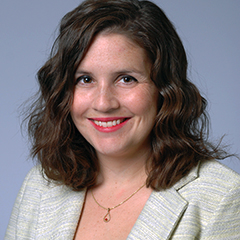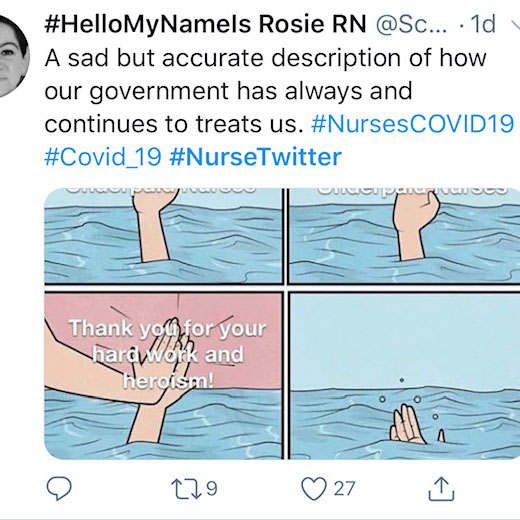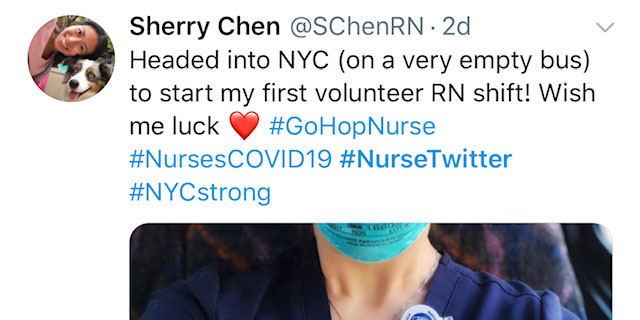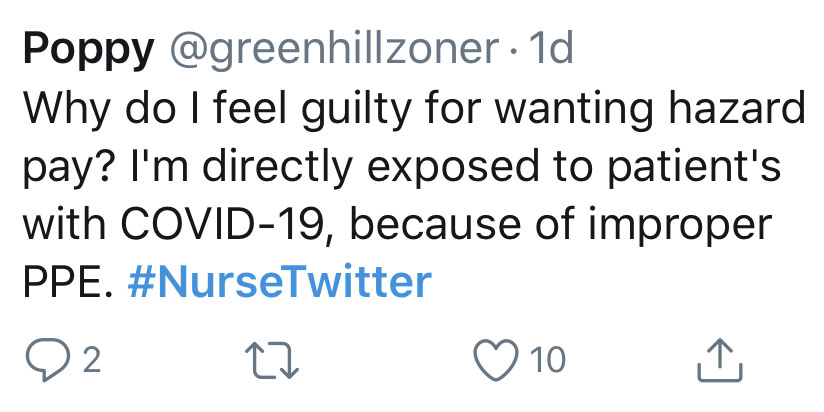Nurses all over the world are serving on the front lines of the COVID-19 pandemic, and they are using social media to share about their personal experiences dealing with the deadly virus. IUPUI’s Wendy Miller is listening to what they have to say to help their hospitals better prepare for the next time an outbreak like this occurs.
Using machine learning, Miller is analyzing the Twitter accounts of nurses to monitor conversations and discover what they tweet as they work through the crisis. An ICU nurse herself, she sees this as an important opportunity.
"We have the ability to take a crystal clear picture of what nurses are doing during this very historical event, and we are also able to educate about what nursing really is and what it does," said Miller, an associate professor in the School of Nursing.
Miller and partner Doyle Groves, a data scientist from Indianapolis, are using topic modeling to listen to what nurses are reporting. Data is generated on an hourly basis by searching for relevant hashtags, and then an analysis is performed using machine learning to generate common topics, like the lack of personal protection equipment available.
"Nurses have become very visible during this outbreak, and they have become very vocal on social media,” Miller said. “This open dive into the data will be really interesting to see how the pandemic has impacted nurses’ roles in our future society."
Since launching the project in early April, Miller said the majority of tweets have come from nurses in larger cities severely affected by the outbreak, like New York City. The data is also temporal, meaning they can see when exactly the tweet was shared. Because of this, they can determine whether certain events on specific days had an impact on what the nurses tweeted. For example, when the US Navy Ship Comfort arrived in New York, did that change the conversation at all? They can also monitor when the government issues new recommendations and policies to see what impact it had.
"This project can help tell us what nurses need in future social distancing by showing what they are saying,” Miller said. “If they talk a lot about not having a particular item like masks, we can help them better prepare for future instances like this."
That data will not only support hospitals in terms of future planning, but it will also help shine light on the important role nurses played during this historic time.
"The COVID-19 pandemic, as horrible as it is, has given an opportunity for nurses to really demonstrate what we do in terms of patient care," Miller said. "I think that’s pretty special, and I hope that it continues even after the pandemic is over so the public knows how important we are as a profession."
Miller will continue monitoring the conversations of nurses throughout the duration of the pandemic.





